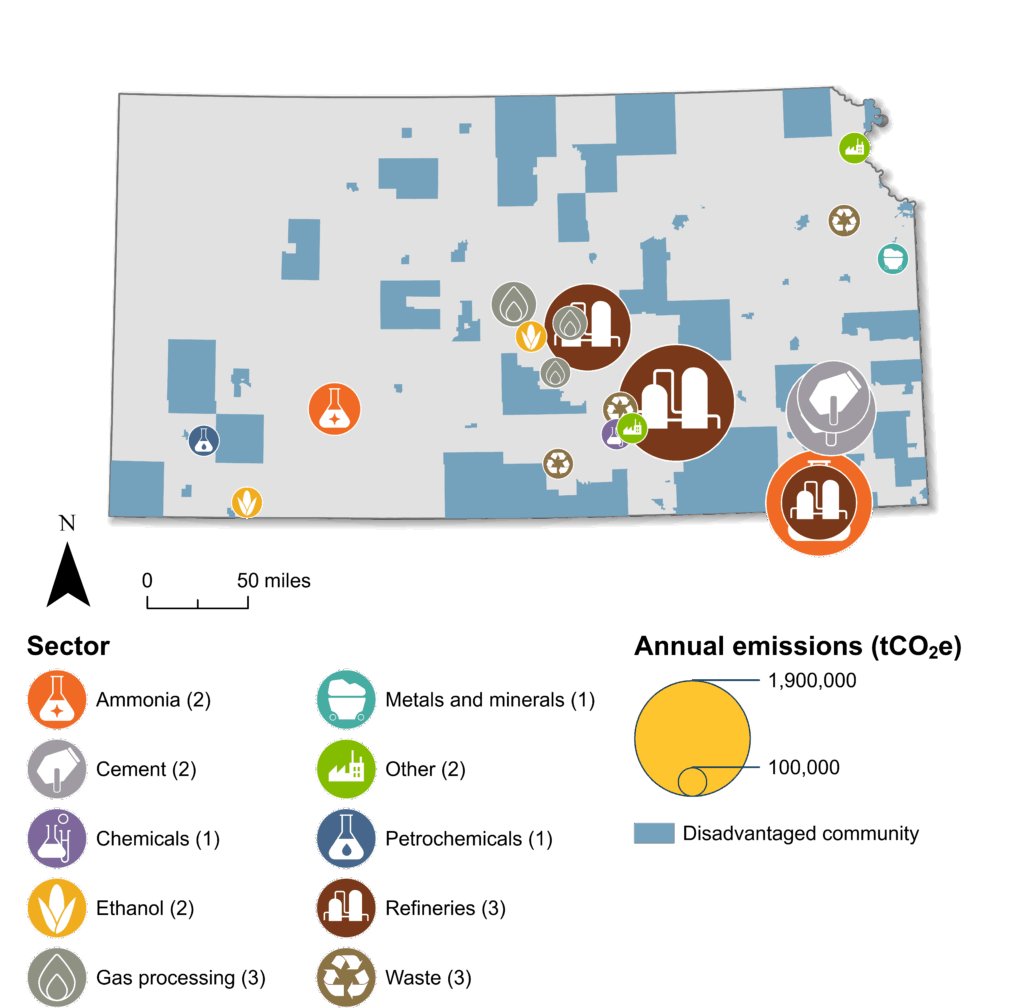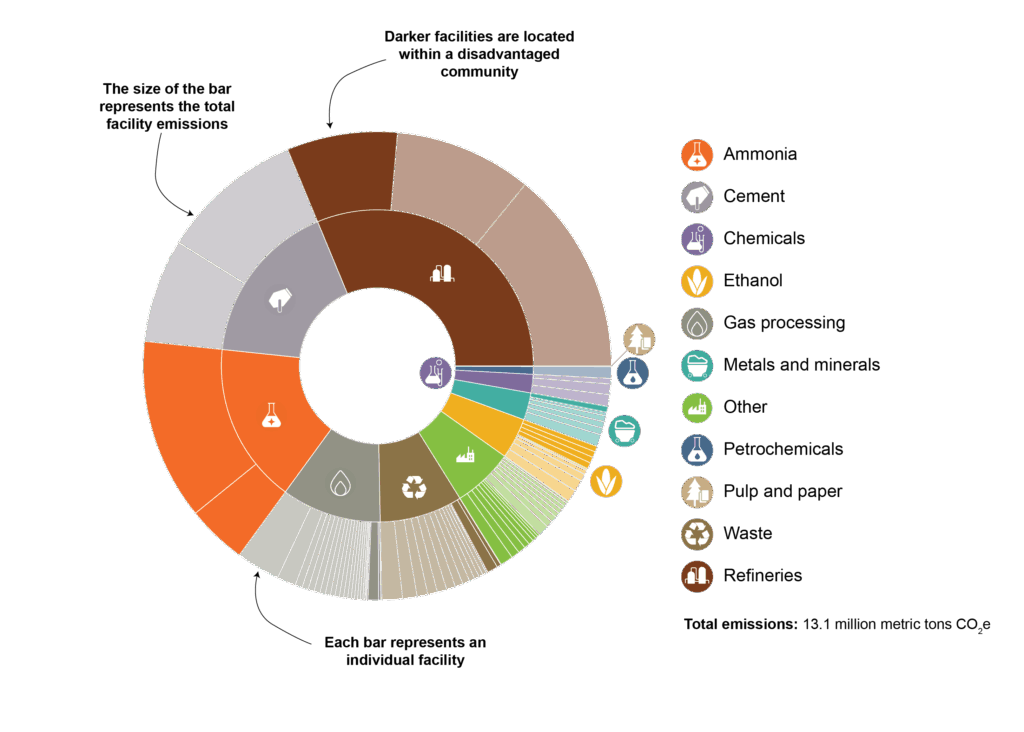Kansas
Kansas ranks 22nd in the nation in industrial emissions. The highest emitting sectors include chemicals, minerals, and refineries. Kansas has three refineries, two large fertilizer producers, and two cement plants. The refining and cement industries are in southeastern Kansas. Chemical production is concentrated primarily in the state’s southern tier.

- The top 20 emitters are shown on this map, coded by industrial sector. The size of the circles corresponds to emissions: the larger the circle, the higher the emissions.
- Disadvantaged communities (as determined by the federal government) are shaded blue.

- The inner circle provides a visual representation of the share of emissions generated by each industrial sector.
- The outer circle also indicates the share of a sector’s emissions generated in disadvantaged communities.
STATE ENERGY POLICY:
Considering a state’s broader energy policy landscape is helpful when developing policies to support industrial innovation. Kansas has not established greenhouse gas emissions targets or a clean heat standard. The state previously had a mandatory renewable energy standard, which was revised in 2015 to be a voluntary goal. While these formal commitments are not prerequisites for advancing innovative industrial policy, they can provide a supportive framework. In addition, the development of effective state energy policy requires several key components: streamlining permitting and establishing an efficient, transparent appeals process that engages local communities early while giving clarity and assurances to project developers. Discussions around innovative industrial policy present an opportunity for broader conversations about state energy policy to ensure a mutually reinforcing strategy.
STATE LEGISLATIVE context & opportunity:
Let us know if you are aware of additional legislation advancing industrial innovation in Kansas that should be featured. The context below is not exhaustive and serves as an example of recent policies and programs, and where there may be future opportunities:
- Kansas recently considered a bill (S.B. 274) that would require the Kansas State Corporation Commission to hire a consulting firm to conduct a technical and legal feasibility study on developing new nuclear energy generation in the state. The study would include, among other things, specific recommendations of optimal designs based on site characteristics and possible industrial uses, as well as additional efficiencies and benefits from coordinating with other advanced clean energy technologies like hydrogen, direct air capture of carbon dioxide, and energy storage. If enacted, this study could present an opportunity to shape the state’s framework for how nuclear and other clean energies support industrial modernization.
- Carbon capture technologies are another opportunity to reduce industrial emissions in the state. Learn more about the economically feasible subsectors in Kansas and facilities that qualify for the federal 45Q tax credit.
Explore recent legislation in Kansas and all 50 states by clicking on a specific year: 2025 legislation, 2024 legislation, 2023 legislation.
